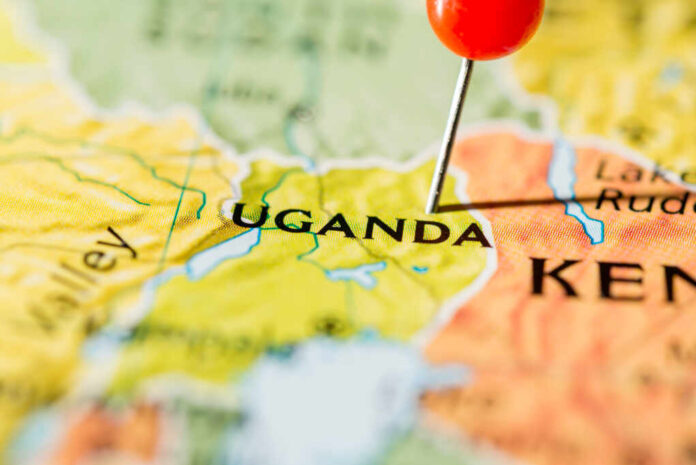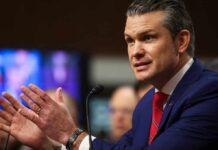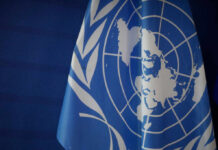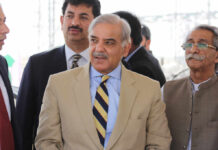
Western governments are quietly outsourcing rejected asylum seekers to Africa, sparking concerns over sovereignty, security, and constitutional values in the face of unchecked globalist migration agendas.
Story Snapshot
- The Netherlands signed a deal with Uganda to host rejected asylum seekers, mirroring controversial migration outsourcing trends.
- Legal and human rights debates erupt, with critics warning of potential violations and ethical concerns.
- The agreement arrives amid surging anti-immigration sentiment and political upheaval in Europe.
- Similar policies have faced legal challenges in the UK and EU, raising doubts about long-term viability and impact.
Dutch-Uganda Asylum Deal: A New Front in Global Migration Policy
The Netherlands and Uganda finalized a letter of intent in September 2025 to create a transit center in Uganda for rejected asylum seekers who cannot be returned directly to their countries of origin. The deal, signed during the UN General Assembly in New York, positions Uganda as a temporary host for individuals not accepted elsewhere, pending repatriation. This move reflects a growing trend among Western countries to shift migration management to third nations, a strategy fraught with legal and humanitarian scrutiny. The Netherlands frames the plan as a voluntary, small-scale pilot focused on migrants from neighboring African countries, pledging compliance with international law and human rights safeguards. Yet, the lack of concrete operational details leaves many questions about its implementation and effectiveness.
Watch; Uganda Agrees to Host Asylum Seekers Rejected by the Netherlands | Firstpost Africa
Debate over the Dutch-Uganda deal intensified following the Dutch government’s collapse in 2024, a crisis fueled by fierce disputes over asylum policy. Far-right parties in the Netherlands demanded stricter controls as migration pressures mounted across Europe. Outsourcing rejected asylum seekers to third countries is not new, with precedents like the UK’s Rwanda plan and EU discussions on offshore processing centers—initiatives that have often faced legal and ethical roadblocks. The Netherlands positions Uganda as a stable regional partner, but concerns persist over the African nation’s capacity and human rights record. This policy arises amid pre-election tensions in the Netherlands, where migration remains a flashpoint issue.
Stakeholders, Power Dynamics, and Risks to Sovereignty
Key players in this agreement include Dutch Migration Minister David van Weel and Ugandan Foreign Minister Odongo Jeje Abubakhar. International organizations such as the EU, IOM, and UNHCR are set to provide oversight and technical support, while rights groups like Amnesty International voice skepticism about legality and humanitarian protections. The Netherlands seeks to alleviate domestic migration pressures and avoid political backlash, leveraging financial and diplomatic clout. Uganda, meanwhile, gains international support and potential funding. However, critics argue that these arrangements entangle local communities and raise the risk of constitutional erosion, as executive actions skirt legislative checks and threaten established protections for due process and individual liberty.
The UK’s Rwanda deportation plan, ultimately scrapped after legal challenges, serves as a warning for the Netherlands and other European nations. The Dutch government asserts that participation in Uganda’s transit hub remains voluntary, but ambiguity persists regarding enforcement mechanisms and the rights of those affected. Rights groups emphasize the need for transparency, oversight, and adherence to legal standards to prevent abuses. The power dynamics favor Western financial interests, but the social and economic strain falls on Ugandan communities tasked with hosting the transit center.
Impact on Families, Security, and Conservative Values
The short-term effect of the Dutch-Uganda deal may be a reduction in the number of rejected asylum seekers visible in the Netherlands, but the arrangement faces logistical hurdles and potential court challenges. Over the long term, such outsourcing could reshape migration management across Europe and beyond, setting precedents that threaten national sovereignty and constitutional order. Local Ugandan communities may bear unforeseen social and economic burdens, while Dutch society grapples with shifting political discourse and the threat of government overreach.
As Western governments continue to test the boundaries of executive power, American conservatives must remain vigilant against any erosion of constitutional principles, individual liberties, and family values. The Dutch-Uganda transit center exemplifies a broader trend: governments seeking quick fixes for migration crises while risking the unintended consequences of globalist agendas and unchecked policy experiments. With similar debates unfolding in the US and Europe, the need for robust oversight, transparency, and respect for national sovereignty has never been greater.
Sources:
Uganda agrees to host asylum seekers rejected by the Netherlands – Arab News (AFP)
Netherlands strikes deportation deal with African country as it adopts US-style migration outsourcing – Business Insider Africa
Netherlands nearing deal with Uganda on offshore migrant return hub – InfoMigrants

























